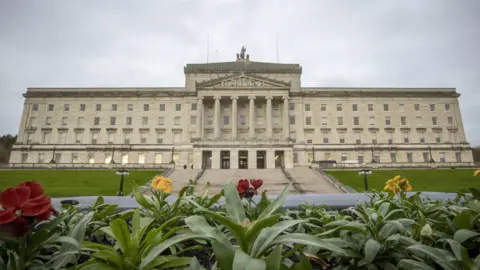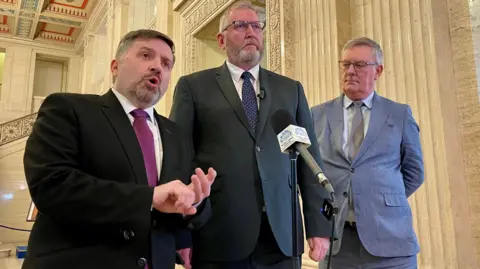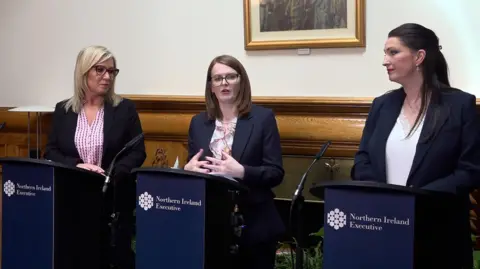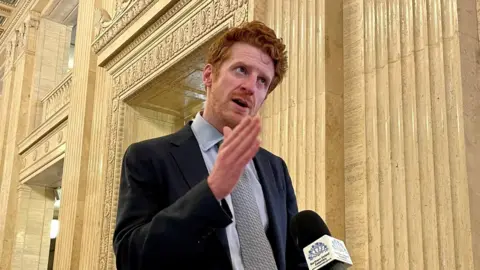Stormont budget to receive extra money in government deal
 PA
PAAbout £24m of extra money will immediately be available for Stormont’s budget.
It follows an agreement by the Stormont Executive and UK government to review how Northern Ireland public services are funded.
The interim deal builds on the funding package which helped restore devolution in February.
It will mean NI gets a "needs-based" top up to its normal funding allocations.
Ministers will have to agree how to allocate that alongside other funds which are being carried forward from last year.
 PA
PALast month the Health Minister Robin Swann refused to support the Stormont budget saying it amounted to a cut to his department.
He is likely to argue that health should get most, if not all, of the additional money.
The agreement also means that Stormont will not face a financial "cliff edge" in 2026 when one-off funding from the £3bn devolution restoration funding package runs out.
The Executive has received an assurance it will be funded "at need" in 2026 but what that amounts to will not be clear until the next government carries out a UK-wide spending review.
'Funding cliff edge'
 PA
PAFinance Minister Caoimhe Archibald said: “Following intensive and constructive negotiations I welcome Treasury’s agreement to reviewing the approach to funding the Executive at the relevant Spending Review.
“This firm commitment from Treasury starts to address our concerns over a funding cliff edge once the financial package comes to an end in 2025/26."
Stormont's major source of funds is the "block grant" it receives from the Treasury every year.
Increases to the block grant are worked out using the population-based Barnett formula.
Additional spending on public services in England means an equivalent amount is added to Stormont’s budget.
 PA Media
PA MediaThe SDLP's Matthew O'Toole described the interim deal as a "one-sided" document which is an "embarrassing restatement of all the areas where Executive parties have already folded to Tory and Treasury demands with only flimsy promises of future reviews of Northern Ireland’s funding needs".
“If this is what challenging the Tories looks like, I’d hate to see what giving in to them looks like," he added.
Public spending per head in Northern Ireland is higher than in England as it costs more to deliver public services of the an equivalent standard to a smaller population.
The UK government has endorsed the view that Northern Ireland is currently being funded below its objective level of need.
Independent experts on the Northern Ireland Fiscal Council have estimated that Northern Ireland needs about £124 per head for every £100 per head spent in England.
Northern Ireland is estimated to have now fallen below that level to about £120 per head, when the one-off impacts of the funding package are excluded.
The government has agreed to top up any funding allocations by 24% as a way to get back to the assessed level of need.
It has also committed to review the size of the top up if credible independent analysis makes the case that it should be higher than 24%.
The Executive wants the Stormont budget to be given a new baseline which will take it back to the level of need in one jump.
There is an acknowledgment that would only happen in the context of a UK spending review which is due to happen shortly after the general election.
